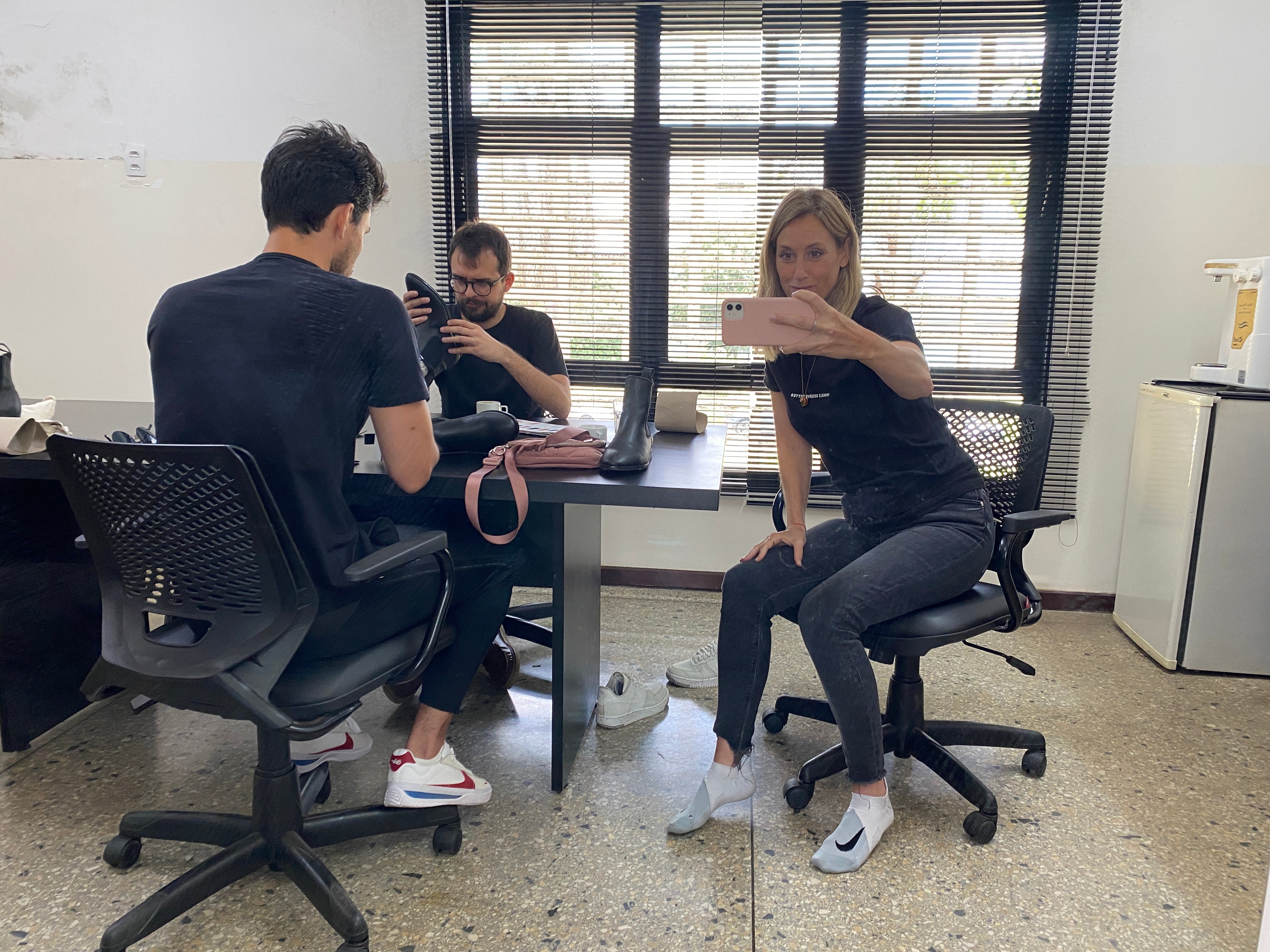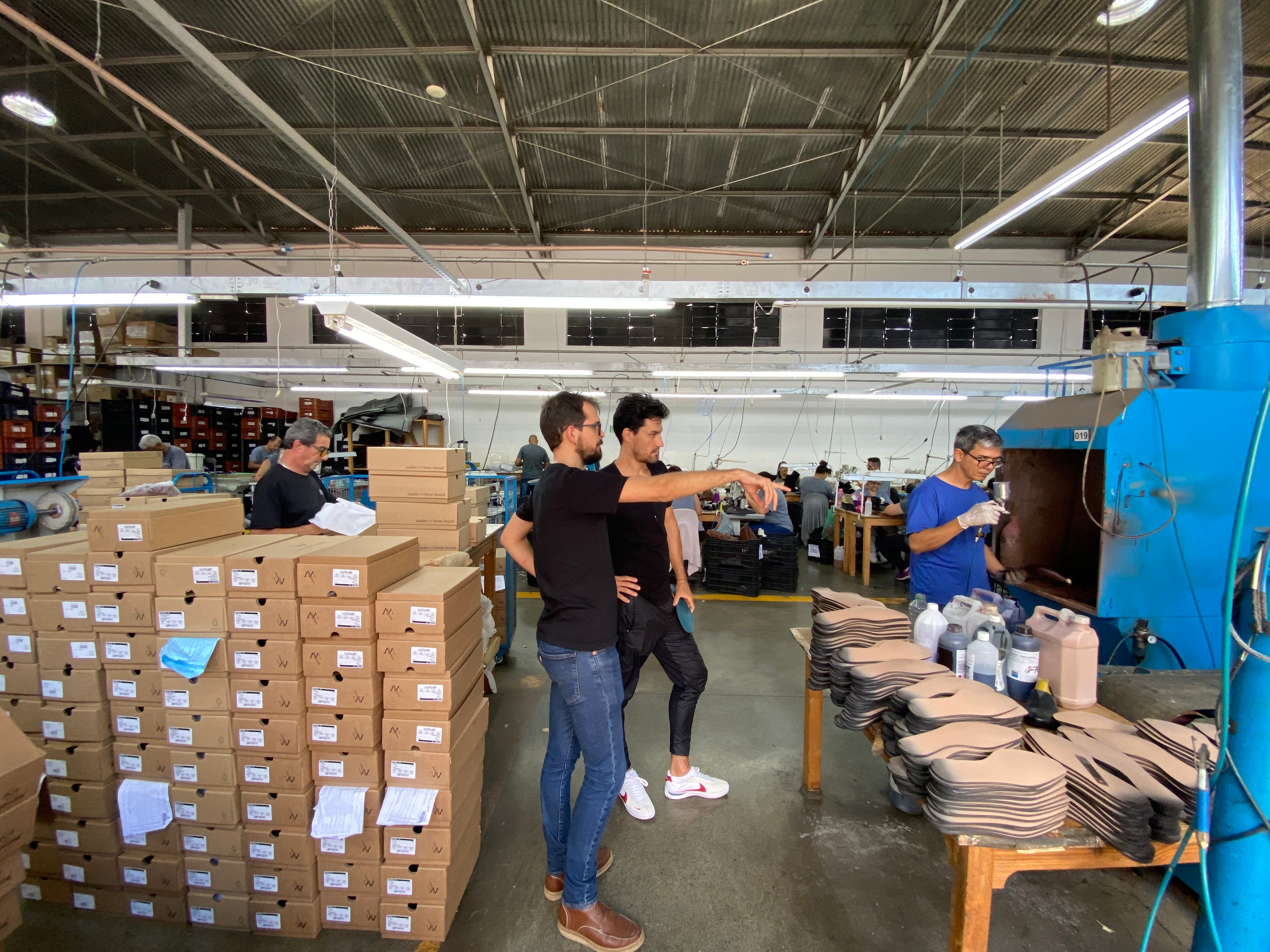🌱 The Top Environmental Benefits of Plant-Based Vegan Leather 🌱
As the world becomes more conscious of the environmental impact of our choices, a growing number of people are embracing plant-based vegan leather alternatives in various aspects of their lives. One area where a significant shift has occurred is in the realm of fashion, particularly with the rise of vegan leather. Made from plant-based materials rather than animal hides, vegan leather offers numerous environmental benefits. Let's explore some of the top advantages of choosing plant-based vegan leather:
1️⃣ Animal Welfare: Vegan leather is entirely cruelty-free, as it doesn't require the use of animal hides. By opting for plant-based alternatives, we can contribute to a reduction in the demand for animal-based products and help protect the welfare of animals worldwide.
2️⃣ Resource Conservation: The production of traditional leather requires vast amounts of resources, including water, land, and energy. In contrast, plant-based vegan leather can be made from various renewable resources like cactus leaves, pineapple leaves, apple peels, cork, or mushroom mycelium. These materials often require less water, land, and energy to produce, resulting in reduced strain on the environment.
3️⃣ Lower Carbon Footprint: The livestock industry, including leather production, is a significant contributor to greenhouse gas emissions. Raising animals for leather production requires extensive land use, transportation, and energy consumption, all of which contribute to climate change. By choosing vegan leather, we can significantly lower our carbon footprint and contribute to mitigating the effects of climate change.
4️⃣ Chemical Reduction: The tanning process used in traditional leather production involves the use of toxic chemicals, such as chromium salts, which can be harmful to the environment and human health. In contrast, many plant-based vegan leathers are produced using more environmentally friendly processes, reducing the release of hazardous substances into the ecosystem.
5️⃣ Waste Reduction: The use of plant-based materials in vegan leather production provides opportunities to repurpose and recycle agricultural byproducts that would otherwise go to waste. For instance, pineapple leaves, apple peels, and other plant waste can be transformed into durable and versatile vegan leather materials, reducing overall waste and promoting a circular economy.
6️⃣ Biodegradability: While traditional leather can take decades to decompose, some plant-based vegan leathers are designed to be biodegradable or compostable. This means that at the end of their lifespan, they can break down naturally, minimizing their impact on landfills and ecosystems.
By embracing plant-based vegan leather alternatives, we can make a positive difference for the environment and contribute to a more sustainable fashion industry. With continued innovation and awareness, the future of leather production could see a significant shift toward more ethical and eco-friendly materials.
If you are looking for vegan leather women's boots that are similar to leather and not entirely made of PU (vegan leather polyurethane) look no further!
Check out our collection here, made with plant based vegan leather made of cactus - Cactus Leather by Desserto!
This surge in interest has led to the development of innovative plant-based vegan leather options that offer a guilt-free alternative without compromising on style or quality. Especially for conscious consumers who are looking to move beyond vegan PU polyurethane material. Here is our list of some of the best alternatives to traditional leather, highlighting the benefits of these non leather materials and their popularity among conscious consumers.
-
Desserto: Recognized for its remarkable resemblance and similarity to traditional leather, Desserto is a plant-based vegan leather made from cactus. Developed by Mexican entrepreneurs, this alternative leather is crafted from the Opuntia cactus, which thrives in arid conditions and requires minimal water. Desserto is soft, breathable, and free from toxic chemicals commonly found in traditional leather production. This is our favourite as it the non leather material, plant based vegan material, we are using in our vegan designer black chelsea boots!
-
Piñatex: Derived from pineapple leaves, Piñatex is a revolutionary plant-based leather alternative that showcases the power of sustainable innovation. It is made from the byproduct of pineapple farming, utilizing the leaves that are often discarded. Piñatex mimics the texture and durability of traditional leather while reducing waste and promoting a circular economy.
-
MuSkin: Created from mushroom caps, MuSkin is a versatile vegan leather option that provides a unique texture and appearance. It is derived from the Phellinus ellipsoideus mushroom, which is carefully harvested without causing harm to the fungi's mycelium. MuSkin is breathable, water-repellent, and biodegradable, making it an excellent eco-friendly alternative to traditional leather.
-
Cork Leather: Cork leather, often sourced from the bark of cork oak trees, is a sustainable and renewable vegan leather option. The extraction process does not require the tree to be cut down, allowing it to regenerate and continue absorbing carbon dioxide. Cork leather is lightweight, water-resistant, and possesses a natural aesthetic that adds a touch of uniqueness to fashion items.
-
Apple Leather: Apple leather, also known as "AppleSkin," is a sustainable leather alternative made from apple waste, such as cores, peels, and seeds. The discarded fruit parts are dried, ground into a fine powder, and mixed with a polyurethane binder to create a durable material that closely resembles traditional leather. This eco-friendly option offers a unique texture and is particularly popular for accessories like phone cases and watch straps.
-
Recycled Plastic Leather: Taking a step towards addressing the global plastic crisis, recycled plastic leather has gained traction as a vegan leather alternative. It is made from repurposed plastic bottles or other plastic waste, which are processed into a synthetic material with a leather-like texture. By using recycled materials, this option helps reduce plastic pollution and provides a stylish and sustainable alternative.
These are just a few examples of the best plant-based vegan leather alternatives available today which move beyond vegan PU polyurethane material. Each option showcases the tremendous strides made in sustainable fashion, offering consumers the opportunity to make conscious choices without sacrificing style or quality.
Let's choose fashion that aligns with our values & helps create a better world for all living beings 🌍🌱


